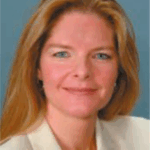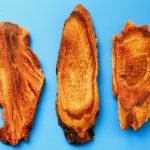Naturopathic Physicians—Comprehensive and Effective Providers for Women
Carrie Louise Daenell, ND
By the age of 65, 80% of all women will report arthritic problems. According to the Surgeon General, 50% of American women are currently overweight or considered obese. Moreover, female obesity rates have risen to 36%1, surpassing those of their male counterparts. Diabetes mellitus is the fifth leading cause of death in women, while heart disease remains the No. 1 killer of American women. Women represent 50% of all stroke cases, with a dramatic 61% of those who will die from a stroke.2 Nearly twice as many women than men will suffer from both depressive disorders and anxiety disorders.3 Women are five to eight times more likely to suffer from a thyroid disorder than men, and when it comes to autoimmune diseases, women account for 75% of them.4
Further, culturally diverse women receive fewer preventative health interventions than white women. It is estimated that 55% of Asian, 43% of Hispanic and 37% of African American women will not have received a routine pap screening in the past year.5 Statistics become more daunting as we look at mammograms and blood pressure checks.
Clearly, providing effective care for women will entail far more than a pap smear and a mammogram. It involves supporting the whole person in the face of sobering statistics and chronic degenerative disease development. Providing effective care for culturally diverse women involves outreach and cultural responsiveness.
Naturopathic physicians are uniquely positioned to meet the rising demand for comprehensive care in the female patient. Naturopathic physicians are trained to treat the whole person. We seek to find the interconnectedness of a multifaceted health picture. We seek to treat at the most causal level, which is ideally suited to the management and resolution of chronic degenerative disease states. Further, the clinical interventions that we employ are designed to take preventive medicine beyond mere screening to actually improving the course of health in a woman’s life.
Our carefully selected natural interventions will often manage many different diagnoses with one line of support. Because when the underlying pathology is understood, they are all related. Our thorough case taking, which is paramount to the provision of naturopathic care, facilitates this process and ensures the necessary and appropriate level of intervention is offered while first “doing no harm.”
As naturopathic physicians, we are also in a position to take the time to offer an enhanced level of communication between doctor and patient. This may allow for more sensitive provision of care to those reluctant to pursue it. Further, it may serve to make a contribution toward decreasing the disparities in care access and health status for culturally diverse women.
The woman on the receiving end of such care is afforded a unique opportunity to finally be heard as a whole person. Her entire case is taken with consideration for each and every aspect as they relate to one another; just as her life has unfolded to deliver her to the moment and the set of circumstances that brought her to the office with her collection of challenges and medical needs. Further, the care for her challenges and concerns are fully integrated, possibly for the first time in her life. Ultimately, she moves beyond slipping through the cracks of segregated care, which pieces out her health challenges to often conflicting symptom management, to a comprehensive plan for enhanced health, disease resolution and an overall improved level of well being.
Modern naturopathic women’s health care must be messaged as the comprehensive, sensitive, integrative care that it truly is. Our images that tell this story must include the multifaceted array of chronic degenerative diseases women face and that we, as naturopathic physicians, aptly manage. And they must include the faces of women from across the culturally diverse fabric that is the United States. The medicine is already there. It is time to send a clear message as to its availability.
Sources
www.cdc.gov
www.stroke.org
www.nimh.nih.gov/publicat/numbers.cfm
www.amwa-doc.org (American Medical Women’s Association)
www.cdc.gov/nchs/data/statnt/statnt23.pdf
 Carrie Louise Daenell, ND is a licensed naturopathic physician. Previously the managing editor of the Journal of Naturopathic Medicine, she speaks and writes locally and internationally on the topic of natural health. She is a past president of the Colorado Association of Naturopathic Physicians and has served on the board of directors for the American Association of Naturopathic Physicians. She practices as a wellness consultant in the Cherry Creek area of Denver, and is a co-author of Better Breast Health for Life! currently undergoing publication.
Carrie Louise Daenell, ND is a licensed naturopathic physician. Previously the managing editor of the Journal of Naturopathic Medicine, she speaks and writes locally and internationally on the topic of natural health. She is a past president of the Colorado Association of Naturopathic Physicians and has served on the board of directors for the American Association of Naturopathic Physicians. She practices as a wellness consultant in the Cherry Creek area of Denver, and is a co-author of Better Breast Health for Life! currently undergoing publication.










